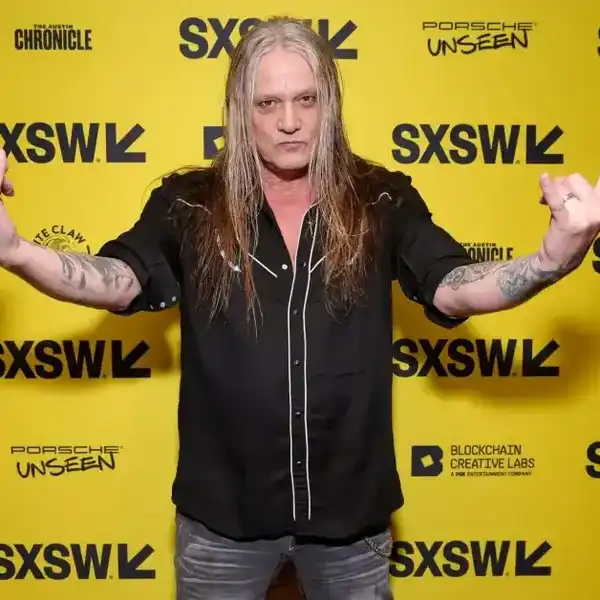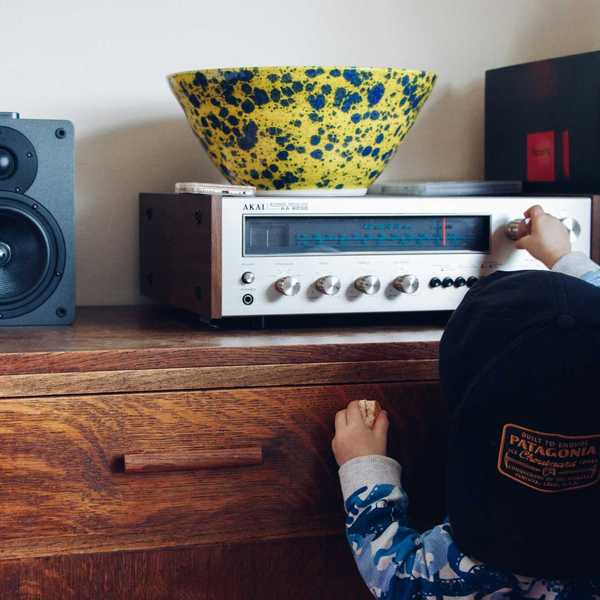advertisement
Billboard is a part of Penske Media Corporation. © 2023 Billboard Media, LLC. All Rights Reserved.
advertisement
Popular
Latest News
advertisement
BILLBOARD CANADA FYI
A weekly briefing on what matters in the music industry
By signing up you agree to Billboard Canada’s privacy policy.
advertisement
advertisement
Publishing
Executive of the Week: Reservoir Founder and CEO Golnar Khosrowshahi on the Global Future of the Music Business
From acquisitions to syncs, the powerhouse Iranian-Canadian exec unlocks value behind some of the world’s biggest artist catalogues, including Joni Mitchell, Miles Davis and De La Soul. Here, she discusses the strategy behind Reservoir’s billion-dollar portfolio and why the next frontier for music rights lies in the Middle East, South Asia and beyond.
11h
The future of music is global.
As the industry expands beyond its traditional strongholds, companies are racing toward emerging markets around the world where cultural influence is growing at a rapid pace. For Golnar Khosrowshahi, the founder and CEO of Reservoir Media, that shift is the core of a long-term strategy that will move her New York-based firm into the new era.
One of the most powerful people in the music business and a long-term fixture in Billboard Power Player lists both in Canada and the U.S., Khosrowshahi has spent nearly two decades building Reservoir into one of the most influential independent companies in the high-stakes music publishing business.
advertisement
Founded in 2007, Reservoir has grown into a global, publicly listed powerhouse. Spanning publishing, recorded music, management, and catalogue acquisitions, the company has deployed over $1.1 billion in capital through major deals — including the $100 million acquisition of Tommy Boy Records and the acquisition of Chrysalis Records. The company works with major artists from Joni Mitchell and k.d. lang to De La Soul and the catalogue of Miles Davis. Recently, Reservoir even invested in U.K. company Lightroom, which is mounting an immersive David Bowie project.
With a footprint that consistently places it in the top 10 of global market share, Reservoir remains a dominant force in the independent sector.
Khosrowshahi’s international outlook is shaped in part by her own background. Born in Iran and spending many formative years in Canada, she is used to thinking globally. The company has offices in New York, Los Angeles, Nashville, Toronto, London and Abu Dhabi and continues to expand into emerging music markets through initiatives like PopArabia in the Middle East and PopIndia in South Asia.
For Khosrowshahi, the ultimate goal of building those bridges is simple: to create music that travels globally.
“Success for us will come in the form of a global hit,” she says. “A hit that will travel around the world, transcend culture and language, a hit whose creators are global themselves.”
advertisement
The borders will become more fluid as songwriters and artists collaborate across territories.
“I don't think there's any reason why you're a Sri Lankan artist and can't have a hit with some of your writers in Nashville.”
In this Executive of the Week interview, Khosrowshahi discusses Reservoir’s business model, the evolving value of music catalogues, and how digital platforms are reshaping the life cycle of songs old and new.
Reservoir is a publishing company, but it’s also so many other things. How would you categorize it?
We characterize ourselves as a publisher, a record label, a management company and an emerging markets music company.
70% of our revenue comes from our publishing business. We are first and foremost a publisher. That's how we got started. That's our bread and butter. We do marketing and acquisition based on the best deals that we can, and some days that might be a label side deal. Other days, it might be a catalogue in India. And tomorrow it may be a very steady and predictable publishing catalogue.
advertisement
You’re at the head of the company. What does a day on the job look like for you?
I have a lot of different hats to wear. I deal with investors, clients, songwriters, artists. I interact a lot with our team across all different kinds of subject matter.
I work a lot on our marketing and acquisitions [M&A], so if we have substantive deals or larger ones, I'm working on that as well. Every day has its own curveball, but that's what keeps it fun and interesting. You need to go where your attention is required and not where you want to put your attention. One of the things that's super important for anybody in my role to remember is that you are here at the service of your team, at the service of every single constituent in our business.
advertisement
From partnering with PopArabia to launching PopIndia, Reservoir has been moving into the growth of South Asian and Middle Eastern music. What is the strategy behind that move and why is it important to you?
The founder of PopArabia is Hussain “Spek” Yoosuf [formerly of Canadian hip-hop pioneers The Dream Warriors]. He spent about five years here in New York on our creative team. Just before the pandemic, he started discussing with us that the Middle East is starting to shape up to be an opportunity in music. Spek moved back to Dubai with his family, and we came to an agreement. We made a commitment to him to grow that business and really have our eye on the target of being the largest holder of Arabic [music] rights in the world.
We began growing the business there and we have invested in artists from the region. You’re looking at a region that has seven to 10 different genres of music. Levantine music is completely different from Mahraganat and then Khaleeji Pop. It's all completely different.
We've bought labels, we've done all kinds of different things there. Spek saw the need for establishing a model to monetize public performance royalties, which just hadn't happened.
Why did the South Asian market need to establish a model for royalties?
The governments in all of these places thought, well, the money's just going to leave the country. Artist X is going to come in from America, from Europe, from Korea. They're going to have a show. These guys have to pay royalties, and then the money is exported. That’s not really an attractive business model, but not paying it out also makes you more vulnerable.
advertisement
[Spek] set up ESMAA, whose intention was to collect public performance royalties. We’ve licensed the fountains in Dubai, all the fan zones for the World Cup, really to create the precedent of licensing music and create diversity in the streams of income that we take for granted here.
We're super excited about the business. We have boots on the ground and expertise in different areas. We have a full-fledged sync operation and creative services. It is an international play that is present, not by proxy, and with people who are extraordinarily knowledgeable about the music and the talent there.
As of late, songs can take off on TikTok or have a perfect sync on TV shows such as Stranger Things and unlock their value. Have you noticed that there are more opportunities than ever for older music as well as newer music?
Yes, there are so many examples. There's a category of older music that is going to have these moments. That could be music as old as “Ready or Not” from The Delfonics, it could be songs like “Take Me Home, Country Roads,” or it could be something in the Miles Davis catalogue. Notice that I've named three songs or three artists that are in a very elite group of positions as far as the extent to which they are part of the fabric of people's lives.
advertisement
I don't think that opportunity exists for just any music. Unexpected things happen with music that isn't necessarily so resonant, but these things happen because there are people out there putting the music in the right places, getting it in the right hands and thinking very creatively about what these other means are, that one could create a viral moment or a new version that is more relevant to a demographic today.
One of your most high-profile projects in the last few years was getting De La Soul onto streaming services. There were big barriers to be removed in terms of sample clearances. Is that what we’re talking about in terms of unlocking value?
Part of it is also client service. With De La [Soul], I knew what was going on.
There was a team of people handling all of the sample clearance every week with the group, all with the intention of getting the music onto streaming platforms. I wasn't down on the sample clearance level, but I knew what was going on and understood how wherever we were in any process like that was going to impact the return on our investment.
It's not like that music was ever on there and then taken down. That music was just never on any digital platform. We essentially overlooked an entire generation of listeners for what was arguably one of the most formative bands of its genre and its time. It left a hole.
You’re also working with Canadian singer-songwriters Joni Mitchell and k.d. lang, who is a client on Reservoir’s roster. As a Canadian yourself, how important are those artists to you personally?
Both k.d. and Joni are special moments for me, particularly having gone to high school in Canada, especially when I did. I graduated in 1989. To have these two artists on our roster is very meaningful.
We're administrators with both of those clients [Joni Mitchell and k.d. lang], and that puts us in a position where we are unlocking value. We have to make sure that, from a digital licensing standpoint and collection standpoint, all of the administrative tasks that we do to collect the income are fulfilled. The quality of the work is no different whether it's a catalogue we own or one that we administer.
Joni’s got a great team of seasoned people around her. I think the most important piece of that whole group is that she knows exactly what she wants to do and what she wants and what her creative priorities are. Our job is to contribute in any way that we can to execute on that, and that's been wonderful to see. [It’s] not surprising when you are a true artist. Whether you're 20 or 80, you're a true artist.
A recent hot topic in the music industry has been the gold rush of artists selling their music catalogues, and you have been at the forefront. How have you seen it evolve over the last few years in the way that people understand it, and how the music industry treats publishing as a sector?
We used to buy things at four times multiples [essentially paying for four years of future profit upfront]. Now, we buy things somewhere in the mid-tens times multiples, and other people buy things at 20 times multiples. That gives you an idea of how things have changed since 2007. Several companies and individuals have educated the marketplace to the point that music is an asset class. We've all gained from that education in different ways.
What do you see as the biggest challenge and opportunity today in the music industry in the age of AI?
The uncertainty and the opportunity are around platforms that will be distributing licensed music intellectual property [IP] rooted in AI. Whether they are AI creation platforms or information dissemination platforms doesn't matter. That is both the opportunity and the threat: not licensing that IP and not creating the necessary monetization models.
I think threat and opportunity are unfortunately interchangeable right now because we are in a situation, as we always are in the music business, where the pace at which the technology develops outpaces the legislative infrastructure that is defining the commercial points of licensing. Everybody’s saying, “Oh, we'll deal with that later.”
Additional reporting by Peony Hirwani and Stefano Rebuli
keep reading
Show less
advertisement
Popular
advertisement
Published by ARTSHOUSE MEDIA GROUP (AMG) under license from Billboard Media, LLC, a subsidiary of Penske Media Corporation.
advertisement

















